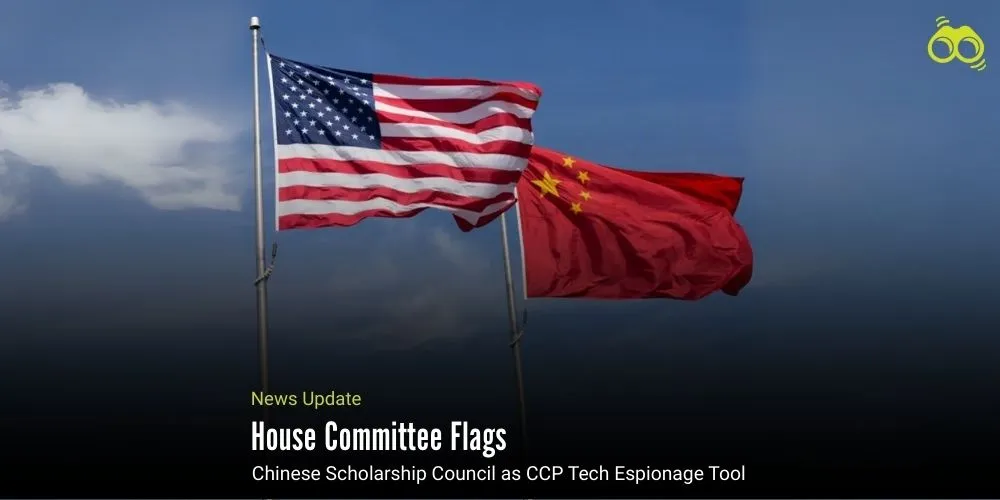Academic Exchanges with China Raise National Security Questions in Congressional Inquiry
Congressional Scrutiny Intensifies Over Chinese Student Exchanges in U.S. Research Institutions
Amid growing concerns over national security and foreign influence in American research institutions, House Republicans have reportedly urged seven prominent U.S. universities to terminate their partnerships with the China Scholarship Council (CSC). In a series of letters sent to institutions such as Dartmouth College, the University of Notre Dame, and several campuses of the University of California, members of the House Select Committee on the Chinese Communist Party expressed apprehension that the CSC programme could serve as a conduit for the Chinese government to access sensitive technologies through academic exchanges.
Lawmakers are said to have described the CSC as a state-funded mechanism that facilitates technology transfer, noting that it sponsors hundreds of Chinese graduate students annually to study at U.S. universities, with a mandatory two-year return to China upon graduation. Representative John Moolenaar, chair of the committee, reportedly stated that although the CSC presents itself as a joint academic initiative, it is controlled by the Chinese Communist Party and used to exploit American institutions for military and scientific advancement.
While the Chinese Embassy had not responded to media inquiries at the time of reporting, several universities have already begun disengaging from the programme. Dartmouth confirmed that it had hosted fewer than ten CSC-sponsored students over the past decade and had already ended its participation. Similarly, Notre Dame indicated that it had initiated the process of terminating its involvement earlier in the year. The University of Tennessee acknowledged receipt of the committee’s letter and stated it was reviewing the matter.
Letters were also sent to Temple University and the University of California campuses at Davis, Irvine, and Riverside. The University of California’s president’s office affirmed its compliance with federal laws and emphasised the importance of international students and global academic partnerships in supporting research, education, and economic development.
The House committee has reportedly launched a formal investigation into the CSC’s role within U.S. universities and requested extensive documentation from all seven institutions. These include records detailing whether CSC-funded students participated in federally funded research, and whether any students changed their academic focus to STEM fields after enrolment. According to the committee, CSC partnerships have brought up to 15 students annually to Dartmouth, 60 to Temple University, and 40 to Notre Dame, with some institutions sharing costs with the Chinese government.
This scrutiny forms part of a broader effort by House Republicans to reassess academic collaborations with Chinese institutions. Representative Moolenaar has previously urged Duke University to sever ties with a Chinese partner, citing similar concerns. Following such pressure, Eastern Michigan University ended partnerships with two Chinese universities in June. A report released last year by House Republicans claimed that hundreds of millions in federal research funding had indirectly supported China’s advancements in areas such as artificial intelligence, semiconductors, and nuclear weapons. The report characterised China’s academic collaborations as strategic tools for covert technology transfer.
Although many U.S. universities support stronger research security measures, they have cautioned against generalising suspicion to all Chinese scholars. They noted that the vast majority of Chinese students are law-abiding and academically focused. In the 2023–24 academic year, over 270,000 Chinese students, mostly self-funded, studied in the United States, comprising roughly 25% of the international student population. The congressional inquiry into CSC partnerships reflects a broader reassessment of global academic cooperation and its implications for national security and technological sovereignty.
Editor’s Note
The recent appeal by members of the U.S. House of Representatives to terminate university partnerships with the China Scholarship Council (CSC) reflects increasing concern over the intersection of academic collaboration and national security. In an era of heightened geopolitical competition, academic exchanges once viewed solely as instruments of mutual learning and global engagement are now also seen as potential channels for strategic influence and technology transfer. This development signals a broader recalibration of international academic cooperation, wherein universities must balance their commitment to global collaboration with the imperative to protect research integrity and national interests. As scrutiny of foreign-funded programmes intensifies, institutions are being called upon to implement stronger oversight mechanisms while continuing to foster meaningful international partnerships.
According to Skoobuzz, reviewing partnerships funded by the China Scholarship Council (CSC) highlights the growing need for careful attention within universities. Protecting research and maintaining clear, secure academic environments is no longer just a routine task; it has become an important part of responsible leadership in today’s highly connected world.














0 Comments (Please Login To Continue)